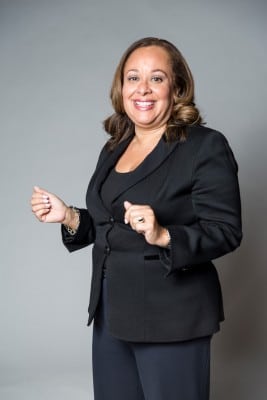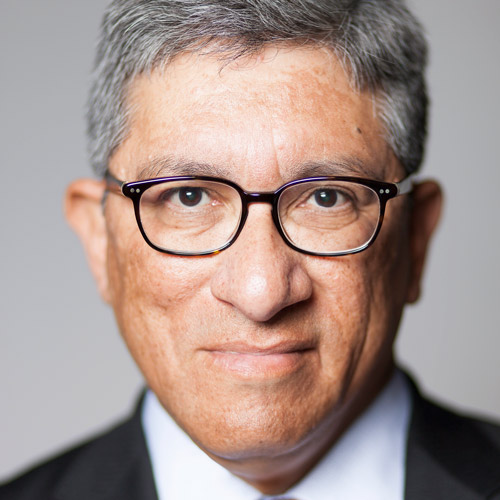
From her high-rise offices on Chicago’s Wacker Drive, Adela Cepeda can see past the skyscrapers to the Chicago River. Through her large windows, she can also view several public projects for which her company, A.C. Advisory, has helped secure financing. Since its inception nearly twenty years ago, A.C. Advisory has raised more than $100 billion for some of the nation’s most complex issuers of debt including the City of Chicago, the City of New York, the State of New Jersey, and the Chicago Transit Authority. Now, Cepeda, a leader in a male-dominated industry, is taking her consummate expertise into the corporate boardroom.
In addition to being a business owner, you serve on a number of corporate boards. Give us an overview of your board memberships. What boards are you on, and in which roles?
I’m a trustee on three mutual fund boards, which I’ve been since 1992. Having had over two decades of experience being a trustee, I’ve become an expert on SEC rules that govern these bodies. Formerly, I was on the board for Wyndham Hotels and was chair of the audit committee. The audit committee was charged with navigating the company through several compliance issues. In 2010, I joined the board of BMO Harris, a bank with more than six hundred branches and fifteen thousand employees.
These banks and mutual funds are in a new era of regulations. How does that challenge you as a trustee and as a board member?
It’s fascinating because there is tremendous and continuous change coming from Washington as a result of the economic crisis. There are countless demands on governance structures and the role of the board. My involvement calls upon all of my governance and financial expertise.
What drives you to participate as a board member?
I love the opportunity to be involved with companies at a very strategic level. I’ve always sought to do that kind of work. I have always wanted to be integral at defining and ensuring the execution of a strategy that makes a company successful.
And how does that translate to your own company?
Being on a mutual fund board gives me live access to how investors perceive the markets, so I get up-to-the-moment reads on their sentiments. That’s key to how I advise my clients about positioning sales and transactions in the market. There’s tremendous synergy.
What led to your decision to start A.C. Advisory?
I had a background in financial advisory work, and I knew that the services I could offer were greatly needed by municipalities. I thought I could make a difference, and I thought being woman- and minority-owned would differentiate me. Large issuers like city governments and other bodies are trying to align their vendor activities with their population. They want to be in business with women and minorities because that’s who makes up their tax base.
Historically, financial services is an industry that’s been dominated by white males. How have you overcome that?
It’s a constant struggle because the stereotype definitely exists. I recently attended an industry event with two hundred peers, and maybe ten of them were women. But one thing I like about finance is that you can always prove your point if you know the analytics. The gender of a brain doesn’t matter. Experience matters. Intellect matters. From the perspective of my clients, I have a proven track record and can represent them at the very highest levels. Once they start working with me, they realize there’s no disadvantage.
Why do you think your firm has been the only minority-owned firm that consistently ranks on the lists of top financial advisors?
We’ve landed some great clients. I’ve worked with the City of New York since 2005 and the State of Connecticut since 2002. Last year, A.C. Advisory crossed the $100 billion threshold in financing, and about $70 billion of that has been for New York.
And what about Chicago, where you make your home?
Chicago has been more hospitable to minority firms since the 1980s. The city has fostered various initiatives to create an entrepreneurial class in minority communities, and it has certainly been beneficial. It gives Chicago an advantage over other cities.
Back to the boardroom. How would you describe the landscape for Latinas?
At BMO, my insights as a Latina are of great interest to management. They sought my input as they developed a significant inclusion plan. Diversity in general is important to BMO, and they asked me to speak to the affinity groups, Hispanic and women. I feel I have built a strong relationship with management in this area. My insights as both a woman and as a Latina are often sought by the marketing team.
What skills do you possess that make you an especially effective board director?
Financial expertise has been a real asset to my work in the boardroom, so I would highlight that skill as critically important. Most important is the ability to probe management’s strategies and to challenge, even when ideas are presented as “de facto.” Most regulated industries seek independent directors that can effectively challenge. I think this is helpful in any industry and does require being assertive and brave. I think the ability to provide input not just on short-term changes, but to extrapolate the longer-term implication of strategies is also valuable as a board member.
Guest Editor Commentary: Value Added
“Adela’s experience addresses three critical success factors for effective directors:
1. Continuous education on industry issues and regulatory changes that may affect the business is critical for any director to be effective in the role. That may require a material investment of time and effort since most boards do not make industry education mandatory for its directors. Unfortunately, lack of director preparation and continuous education are still big issues in many corporate boards, particularly affecting the performance of boards in complex, technical, and highly regulated industries.
2. For any director, knowing his or her ‘stuff,’ being well prepared for discussions, and coupling knowledge and experience with solid strategic thinking should trump gender and ethnicity challenges. This is particularly true in highly data-driven and analytical industries.
3. The value added by the directorship role is a two-way street. At the same time that directors draw from their previous and current business experiences to add new perspectives to the boards they serve, they can learn from issues addressed in the boardroom to draw new insights into the businesses they are operationally responsible for.”
—Ana Dutra


